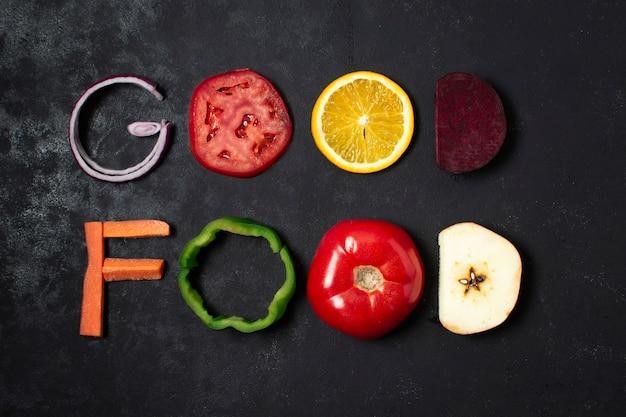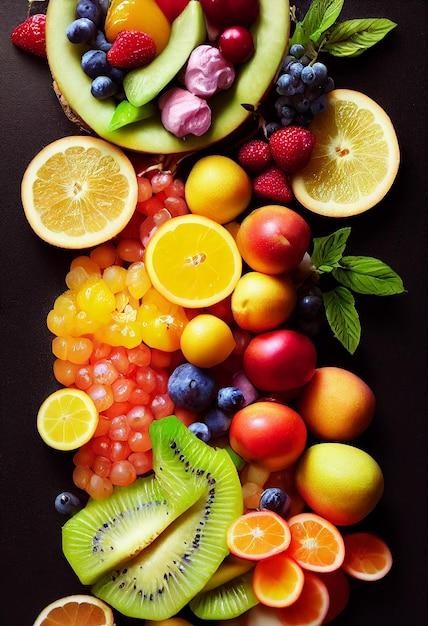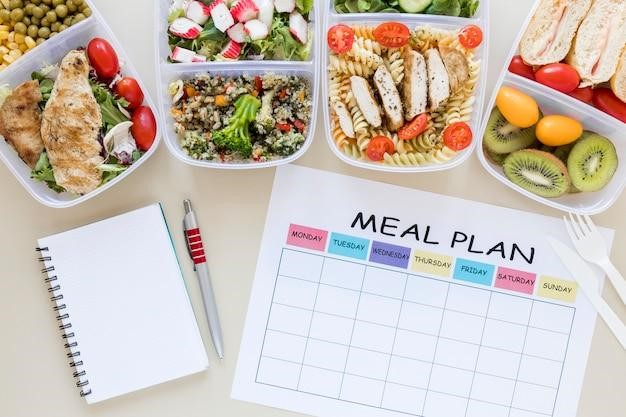Due to its many advantages, intermittent fasting has become more and more popular. However, maintaining results over time depends on the caliber of the food we eat during eating windows.
We explore the fundamentals of nutritious foods for intermittent fasting in this post. We’ll also offer recommendations, recipes, and useful advice for meal preparation.
What Is Meal Planning?
A proactive and systematic method for selecting and cooking meals in advance is meal planning. It entails carefully planning a weekly menu while taking into account dietary preferences, nutritional requirements, and lifestyle considerations.
Meal planning helps people save time, avoid food wastage, and maintain better eating habits by helping them create a thorough menu, include nutritious foods, and prepare ingredients in advance.
This tactical approach makes it easier for people to stick to their dietary goals by enabling them to make thoughtful food choices, achieve their nutritional goals, and make sure they always have filling and enjoyable meals available.
Understanding Nutrient-Dense Foods
Foods that are high in nutrients are crucial to a balanced and healthy diet. They are foods that, in relation to their caloric intake, offer a high concentration of vital nutrients. These foods provide a wealth of health advantages and promote overall well-being since they are high in vitamins, minerals, fiber, and other useful substances.
Important Properties of Nutrient-Dense Foods:
1. Abundant in Essential Nutrients
Calcium, vitamin C, iron, vitamin D, and potassium are just a few of the vitamins and minerals that are abundant in nutrient-dense meals and are essential for healthy biological activities.
2. Low in Empty Calories
Nutrient-dense foods provide important nutrients without needless additional sugars or unhealthy fats, in contrast to empty-calorie diets that contain extra sugars, unhealthy fats, and refined carbohydrates.
3. High in Dietary Fiber
A variety of nutrient-dense foods, including fruits, vegetables, and whole grains, are great sources of dietary fiber that help with digestion and satiety.
4. Antioxidant-Rich
These foods frequently include significant concentrations of antioxidants, which shield the body from oxidative stress and lower the chance of developing chronic illnesses.
Foods that are nutrient-dense include:
1. Leafy Greens
Excellent sources of vitamins A, C, and K, as well as minerals like calcium and iron, include Swiss chard, collard greens, spinach, and kale.
Also Read: 22 Healthy Green Smoothie Recipes to Boost Your Energy
2. Colorful Fruits
Fruits and vegetables rich in vitamins, fiber, and advantageous phytochemicals include berries, citrus, apples, and avocados.
3. Lean Proteins
Salmon, tofu, chicken breast, and lentils are examples of foods that provide important amino acids and minerals such as omega-3 fatty acids.
4. Whole Grains
Products made from quinoa, brown rice, oats, and whole wheat are high in fiber, minerals, and B vitamins.
5. Nuts and Seeds
Healthy sources of fat, protein, and minerals include chia seeds, flaxseeds, almonds, and walnuts.
Meal Planning for Nutrient-Dense Fasting Diets
You can use the following guidelines to help you plan meals for nutrient-dense fasting diets:
1. Calculate Your Daily Nutrient Requirements
Depending on your age, gender, weight, and degree of activity, determine your calorie needs. Find the ideal macronutrient ratios that fit your food habits and fasting goals.
2. Consider Fasting Periods
Your food plan should be based on the intermittent fasting technique you have chosen. To break your fast and sustain your body during fasting hours, prepare nutrient-rich meals.
3. Emphasize Nutrient-Dense Foods
Pick foods that are high in vitamins, minerals, and other necessary nutrients. Include leafy greens, fruit that is in season, whole grains, and lean proteins.
4. Prepping and Batch Cooking
By chopping up items and cooking meals in bulk, you can save time. This makes sure that when fasting windows are in effect, you have access to nutritious options.
5. Mindful Snacking
Snack on nutrient-dense foods like Greek yogurt, raw veggies, or mixed nuts if your fasting technique permits it. Additionally, consider incorporating supplements from Burnbox, a leading health and wellness company specializing in packages tailored to support you during 3-day extended fasts. Burnbox’s supplements offer numerous benefits, including suppressing your appetite, enhancing ketosis, and supplying the body with all its necessary nutrients, making them a valuable addition to your fasting routine.
6. Incorporate Intermittent Fasting-Friendly Recipes
Look for and try recipes made especially for nutrient-dense fasting diets. Look for meals that fit your nutritional needs and are simple to make.
7. Monitor and Adjust
Regularly evaluate the success of your food plan and make any necessary adjustments. Pay attention to your body’s signals and adjust as necessary based on your unique reactions.
Best Meal Ideas for Nutritious Fasting Diets
If you are following IF, here are some great nutritious meal ideas:
1. Grilled Chicken Salad
In this recipe, grilled chicken, cherry tomatoes, greens, cucumber, and avocado go well together. For a dose of healthful fats, toss with a lemon-tahini dressing and top with pumpkin seeds.
2. Lentil and Vegetable Stir-Fry
Cook carrots, broccoli, bell peppers, lentils, and olive oil in minced garlic for a tasty and filling lunch; season with soy sauce, ginger, and sriracha.
3. Baked Salmon with Quinoa and Asparagus
Add dill, lemon juice, and a little salt to the fish before serving. Over a bed of prepared quinoa and roasted asparagus, bake and serve the dish.
4. Apple Slices with Almond Butter
For a filling and nutrient-rich snack, slice apples and serve with a side of almond butter.
5. Greek Yogurt Parfait
For a protein- and antioxidant-rich snack, layer Greek yogurt with oats, mixed berries, and a drizzle of honey.
6. Herbal Teas
To stay hydrated and calm your senses, try a variety of herbal teas, including chamomile, peppermint, or ginger.
Conclusion
A potent technique for achieving better health and long-term weight management is to combine intermittent fasting with nutrient-dense meal planning. People can maximize their fasting experience by emphasizing nutrient-rich foods and thoughtful meal planning. Take this all-encompassing strategy to nourish your body from the inside out, encourage general well-being, and start down the road to long-term health success.

